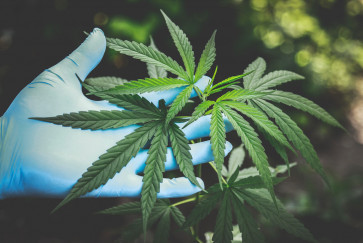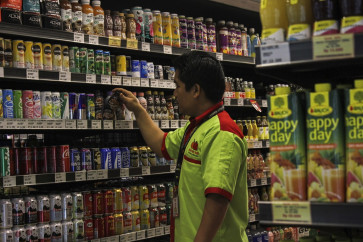Ex-boss slams Pertamina over management issues
Elia Massa Manik, who was dismissed as president director of state-owned energy holding company Pertamina in April, berated the company’s management during a recent discussion with his fellow alumni at the Bandung Institute of Technology (ITB) in Bandung, West Java
Change text size
Gift Premium Articles
to Anyone

E
lia Massa Manik, who was dismissed as president director of state-owned energy holding company Pertamina in April, berated the company’s management during a recent discussion with his fellow alumni at the Bandung Institute of Technology (ITB) in Bandung, West Java.
During a seminar on national resources Elia told the audience that Pertamina did not operate as a true oil and gas company because of its over-reliance on government subsidies and the upstream business.
“If we compare Pertamina and Petronas [Malaysia’s state-owned energy company], the latter booked US$10 billion in [net] profits last year, while Pertamina only saw around $3 billion with the help of subsidies and the upstream sector,” he said, hinting at the heavy burden carried by the firm in the downstream sector given the government’s instruction to maintain affordable fuel prices.
During his term as Pertamina president director, which started in March last year, Elia often clashed with the government on two policies, namely the instruction to limit price increases and maintain the supply of fuel nationwide, including Premium, the cheapest kind of gasoline in the country and which the firm has to subsidize.
The two instructions are in line with President Joko “Jokowi” Widodo’s populist economic policies, which some analysts believe is his strategy to boost his popularity ahead of the 2019 presidential election.
Pertamina calculated in January that selling gasoline below the market price meant its net profits would plummet by more than half until 2022 with the Indonesian Crude Price (ICP) assumption at $48 to $70 per barrel of oil.
For example, with an ICP assumption of $70 per barrel of oil, the projection of Pertamina’s net profits in 2019 would be $600 million. Meanwhile, if the firm sold its fuel at the market price, the net profits would be projected to reach $3.7 billion.
Furthermore, Elia mentioned three aspects that all state-owned enterprises (SOE), including Pertamina, should improve, namely knowledge, speed and courage, even though this might run counter to government demands.
“Courage is necessary; don’t just nod through every instruction from the minister,” he said. “[During my term in state-owned plantation firm] PTPN, I slimmed down its management from five to three directors, so why does Pertamina now have 11 directors when I previously wanted to cut it down from eight to five?”
When Elia was fired in April, Pertamina decided to divide its marketing division into two, with a corporate marketing director and retail marketing director, claiming that it was an effort to be more customer-oriented.
Elia continued his barrage of criticism of how politics hindered Pertamina’s work, saying that the firm had to face many distractions from House of Representatives lawmakers.
“In the private sector, we at least have only three annual shareholder meetings. However, during my 13 months in Pertamina, I had to go 37 times to House meetings. So, when have we got time to work?” He said. “It should be the job of the relevant ministry to represent us.”
Pertamina spokesperson Adiatma Sardjito could not be reached for comment on Friday regarding Elia’s remarks.
Toto Pranoto, SOE expert from the University of Indonesia, concurred with Elia as he cited a 2018 survey from Swiss-based International Institute for Management Development (IMD), which said that SOE management in Indonesia was still inefficient and resulted in poor productivity.
The IMD ranked Indonesia in 43rd position from 63 countries assessed in the 2018 World Competitiveness Yearbook ranking, down one notch from a year earlier.
“Decision-making in our SOEs takes a lot of time because of the complexity of our bureaucracy. […] This is one of the determinants that has stagnated Indonesia’s competitiveness,” he told The Jakarta Post on Friday.
Toto said further that the holding-company status Pertamina currently held should have given the firm more flexibility to overcome bureaucratic hassles. Meanwhile, the SOEs Ministry should only focus on its regulatory role, rather than implementing programs — something that should be done by state holding companies, he said.









